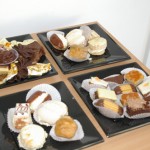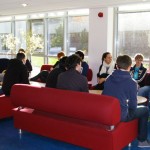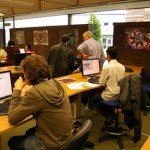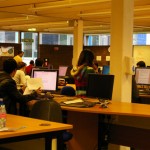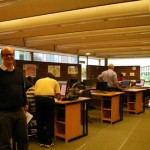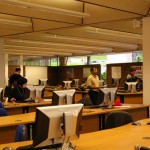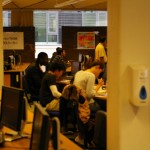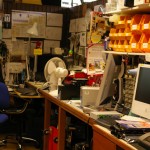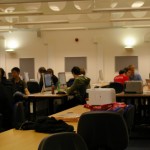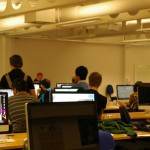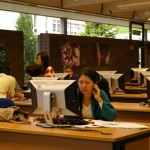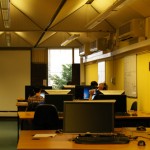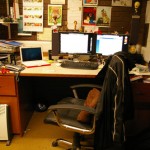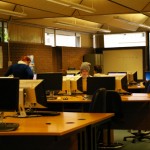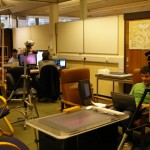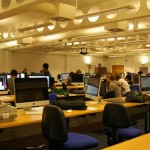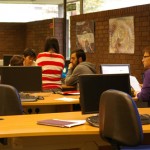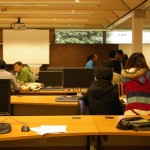Speaker: Annalu Waller, University of Dundee
Abstract:
Augmentative and alternative communication (AAC) attempts to augment natural speech, or to provide alternative ways to communicate for people with limited or no speech. Technology has played an increasing role in AAC. At the most simplest level, people with complex communication needs (CCN) can cause a prestored message to be spoken by activating a single switch. At the most sophisticated level, literate users can generate novel text. Although some individuals with CCN become effective communicators, most do not – they tend to be passive communicators, responding mainly to questions or prompts at a one or two word level. Conversational skills such as initiation, elaboration and story telling are seldom observed.
One reason for the reduced levels of communicative ability is that AAC technology provides the user with a purely physical link to speech output. The user is required to have sufficient language abilities and physical stamina to translate what they want to say into the code sequence of operations needed to produce the desired output. Instead of placing all the cognitive load on the user, AAC devices can be designed to support the cognitive and language needs of individuals with CCN, taking into account the need to scaffold communication as children develop into adulthood. A range of research projects, including systems to support personal narrative and language play, will be used to illustrate the application of Human Computer Interaction (HCI) and Natural Language Generation (NLG) in the design and implementation of electronic AAC devices.
About Annalu:
Dr Annalu Waller is a Senior Lecturer in the School of Computing at the University of Dundee. She has worked in the field of Augmentative and Alternate Communication (AAC) since 1985, designing communication systems for and with nonspeaking individuals. She established the first AAC assessment and training centre in South Africa in 1987 before coming to Dundee in 1989. Her PhD developed narrative technology support for adults with acquired dysphasia following stroke. Her primary research areas are human computer interaction, natural language generation, personal narrative and assistive technology. In particular, she focuses on empowering end users, including disabled adults and children, by involving them in the design and use of technology. She manages a number of interdisciplinary research projects with industry and practitioners from rehabilitation engineering, special education, speech and language therapy, nursing and dentistry. She is on the editorial boards of several academic journals and sits on the boards of a number of national and international organisations representing disabled people.
Event details
- When: 11th October 2011 13:00 - 14:00
- Where: Cole 1.33a
- Format: Seminar


